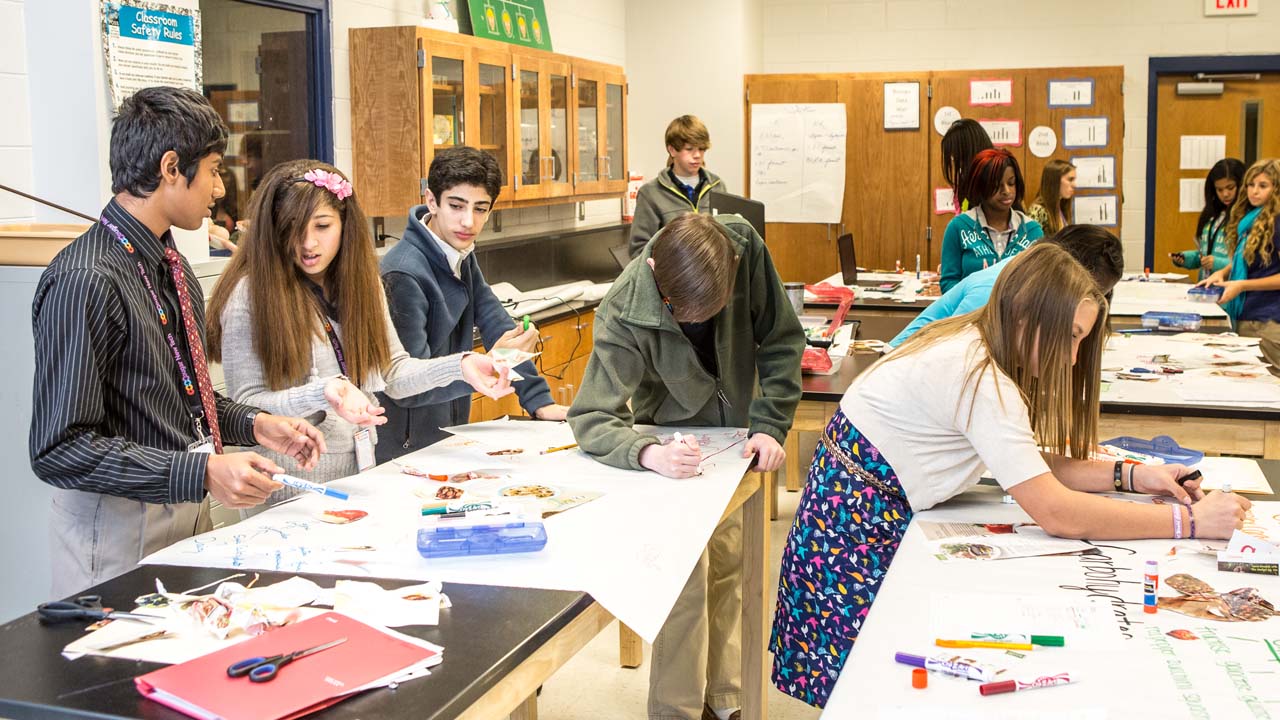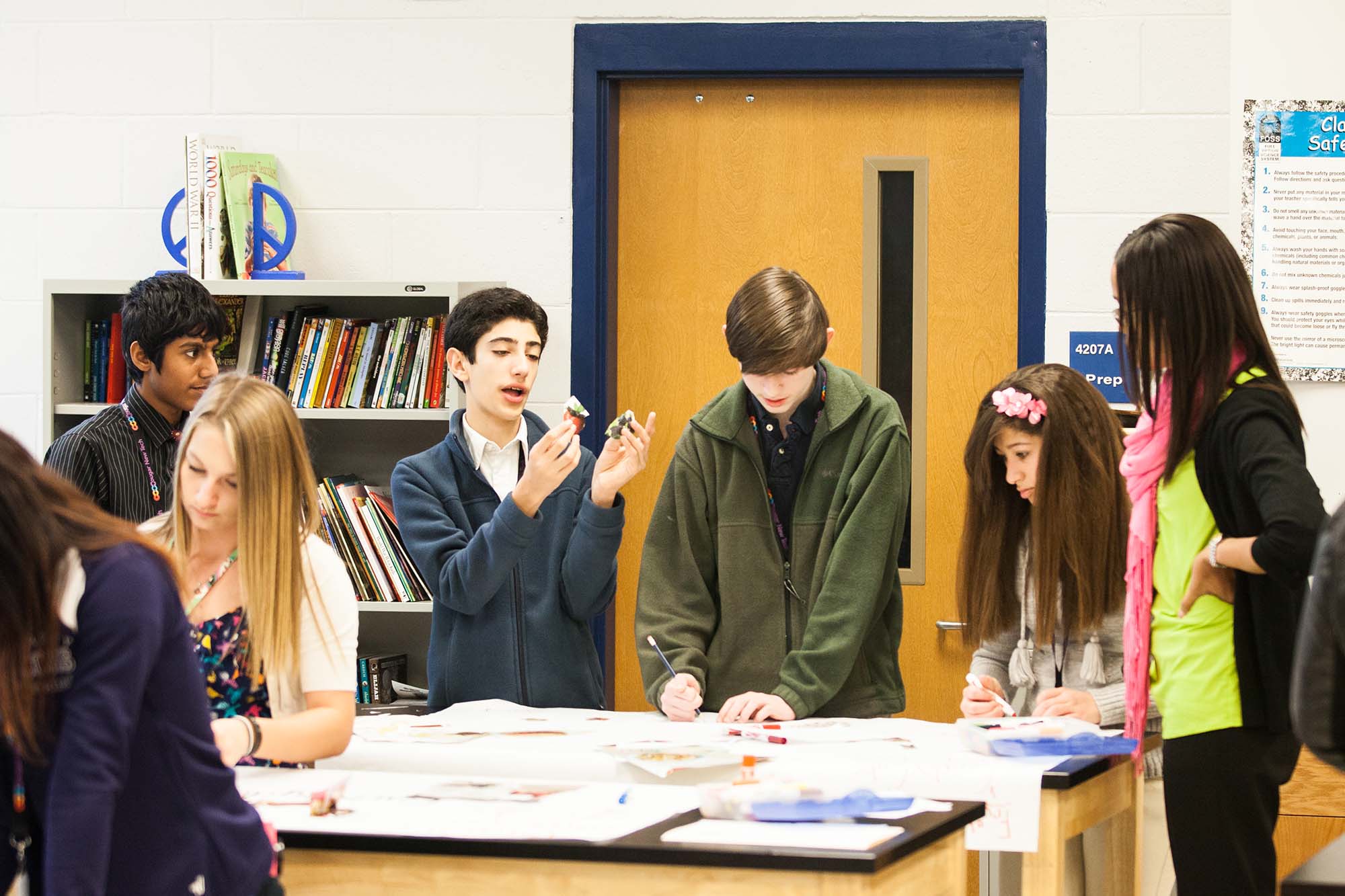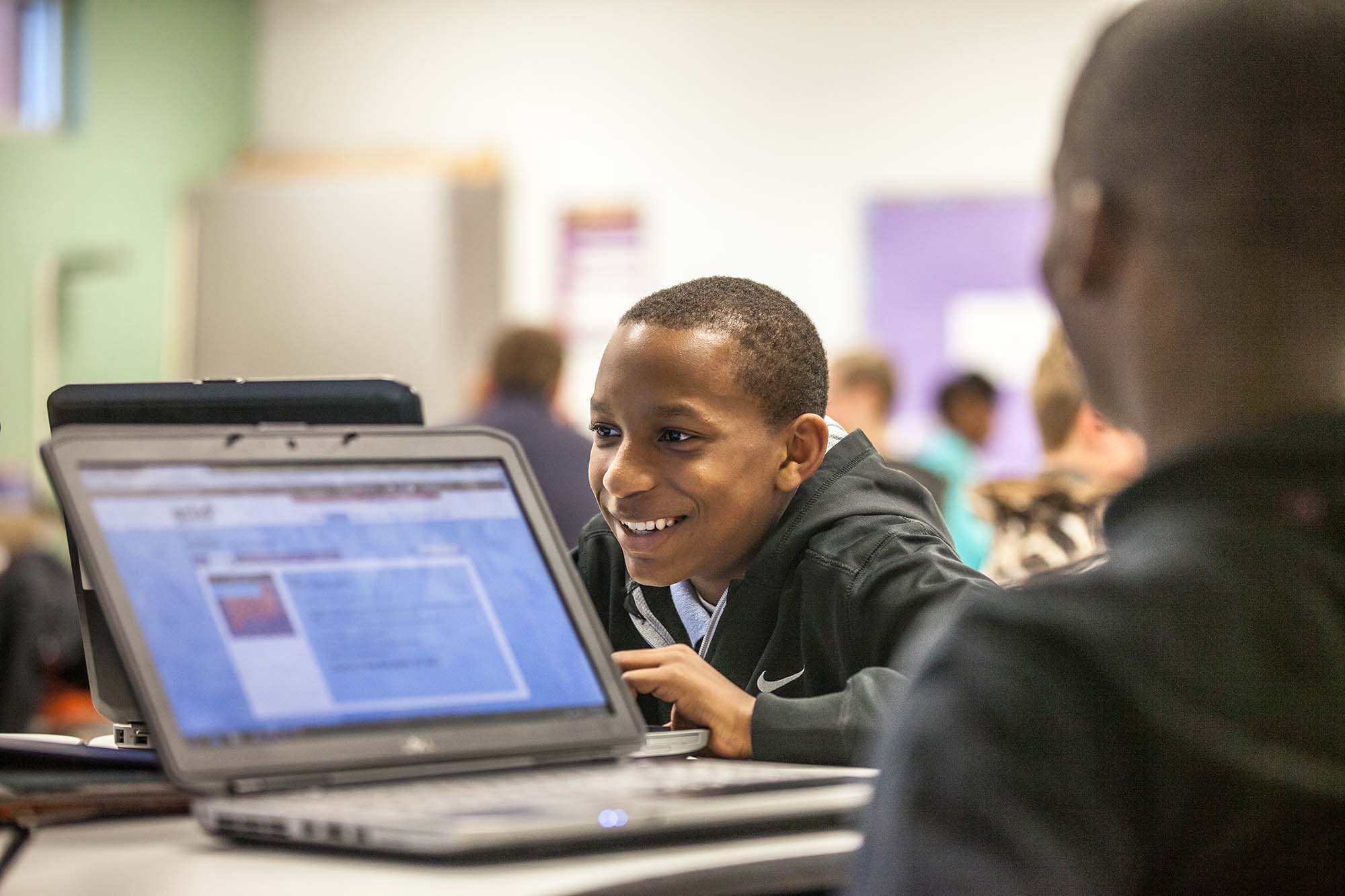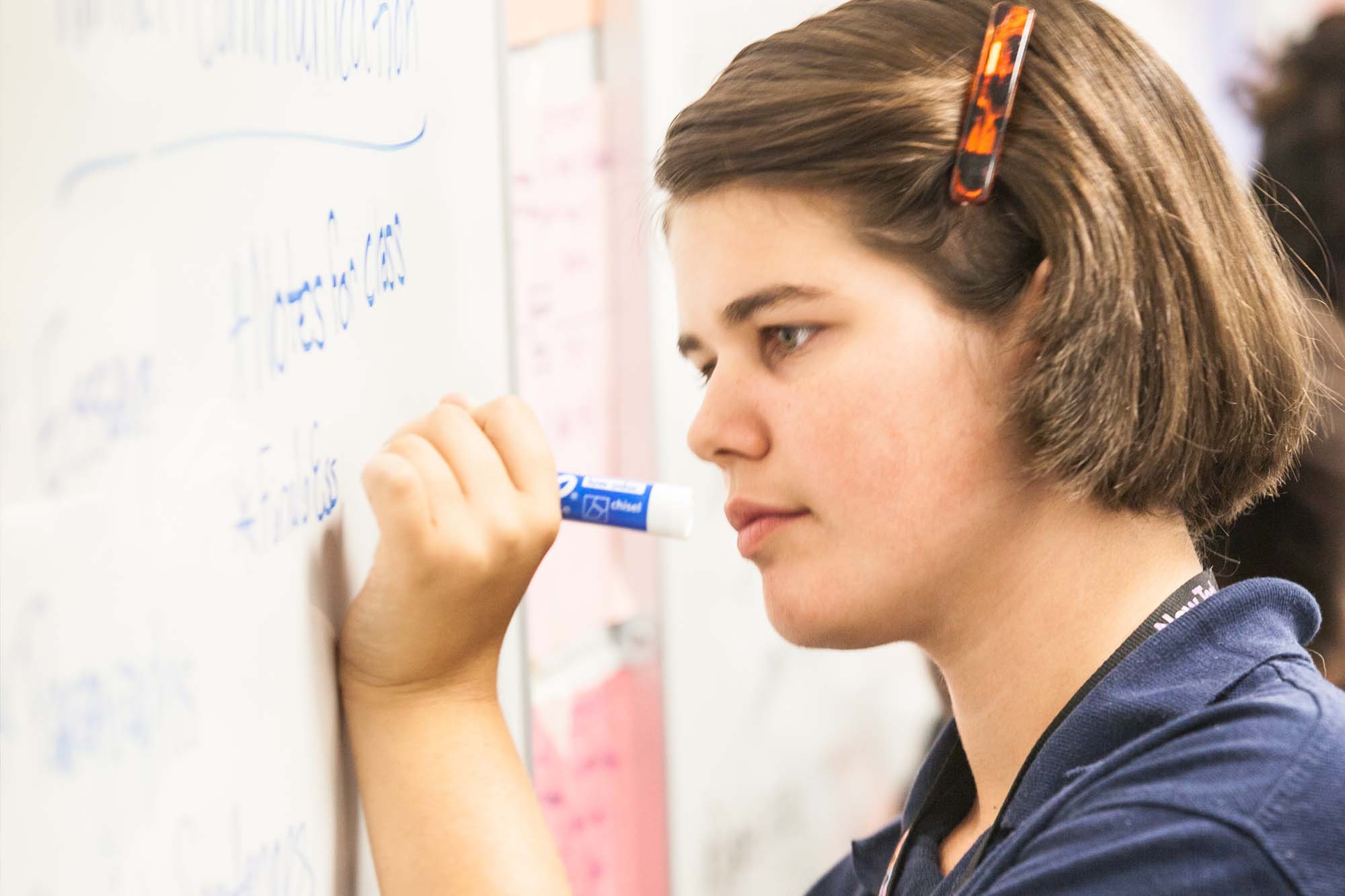Project-based learning (PBL) is a nontraditional way of teaching and learning in which students can gain content knowledge and 21st century workplace skills by actively addressing authentic, real-world challenges. PBL is one of the five primary innovative approaches to public education the Riley Institute supports in South Carolina. Programming includes the Institute’s work with New Tech Network, PBL evaluation, and the PBL teaching credential.
About Project-Based Learning
In high-quality PBL settings, students work in teams, with teachers as guides. Projects are structured to incorporate content standards and are often multi-disciplinary, incorporating content from several different areas. These projects often develop over weeks or months, involve interaction with the broader community, and culminate in a team presentation. Students gain foundational life and workplace skills such as critical thinking, collaboration, and communication.
High-quality PBL encourages multiple problem-solving techniques and fosters student choice. Because students naturally learn in different ways, PBL allows students to develop and apply their strengths as part of a team and be assessed on their ability to demonstrate meaningful application of essential knowledge and skills.



